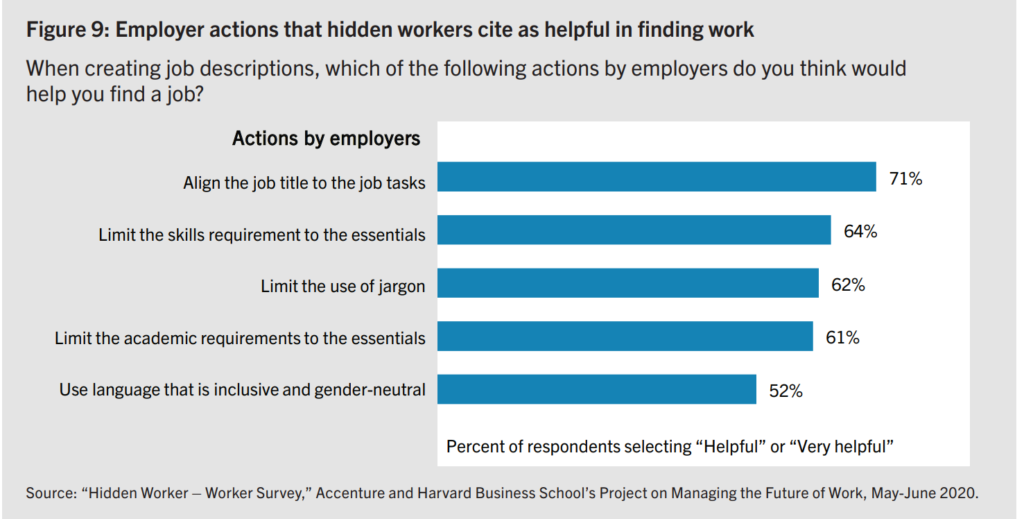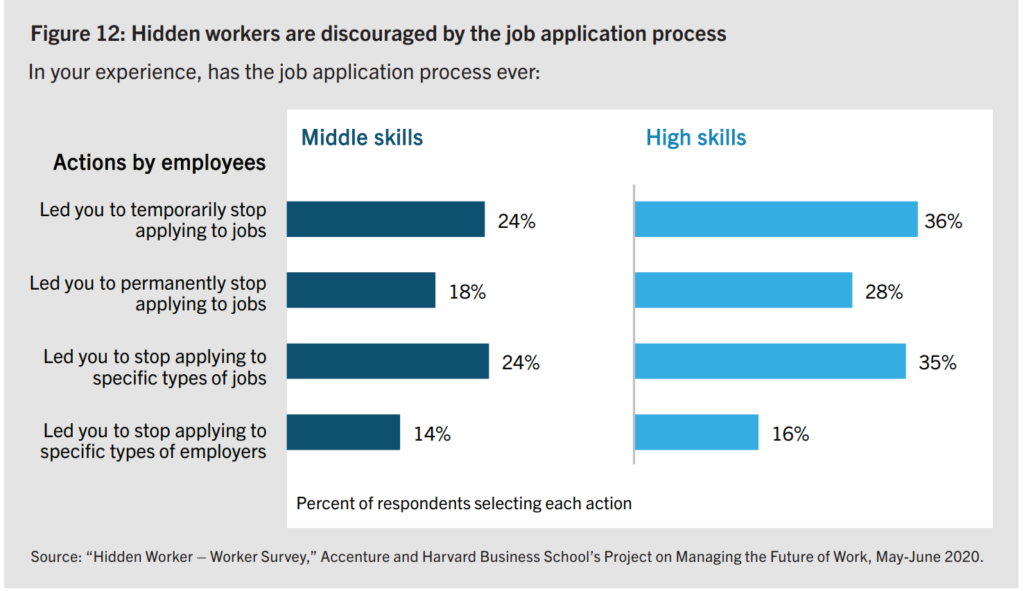Hidden Workers Challenges
The most commonly cited issues for Hidden Workers are surprising but addressable.
Hidden workers are an underutilized (or in some cases completely neglected) source of potential candidates for employers. The most commonly cited problems for Hidden Workers are:
- Not aligning job titles to job tasks. What this means is that jobs sound needlessly complex when they are in fact considerably simpler in actuality.
- Needlessly increasing the number of skills required to complete the job. Many jobs will include some language or skill that are not immediately relevant to a job, but that will scare off a hidden worker from applying to a position.
- Too much jargon in a job description – often job descriptions use needless jargon that complicates simple jobs. Examples could include using buzzwords (“Solutions-oriented, results-driven, go-getter”), technical terms (“Inventory Management System, Point of Sale System”), or needless acronyms (“POS, IMS, SKU, UPC”)
- Requiring academic credentials for jobs that do not necessitate them (Undergraduate degree for a job that can be performed by someone without a degree)

Employer Actions That Hidden Workers Cite as Helpful in Finding Work Current practices cause considerable angst for hidden workers. Many of them stop applying to jobs all together:

At Hiddenworkers.org, we work with our member sites to eliminate some of the problems faced by hidden workers by working with employers directly. Our member sites ensure that every job posted is:
- Simple and easy to understand
- Has no superfluous language (no title or task inflation)
- Requires only the bare minimum skills and academic requirements
- Has no jargon
Additionally, we work with employers up front to ensure their hiring practices “filter in” versus “filter out” potential candidates.
